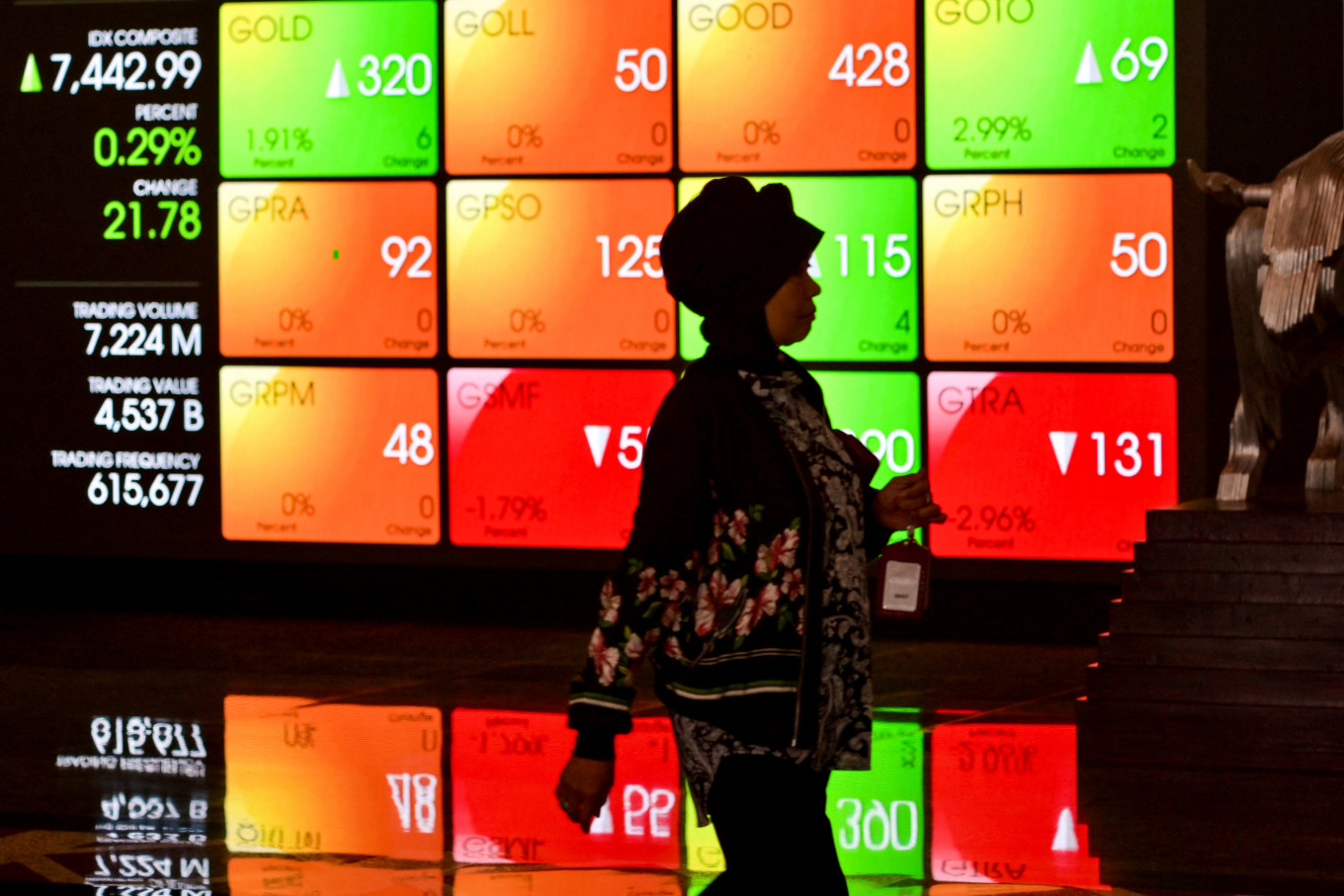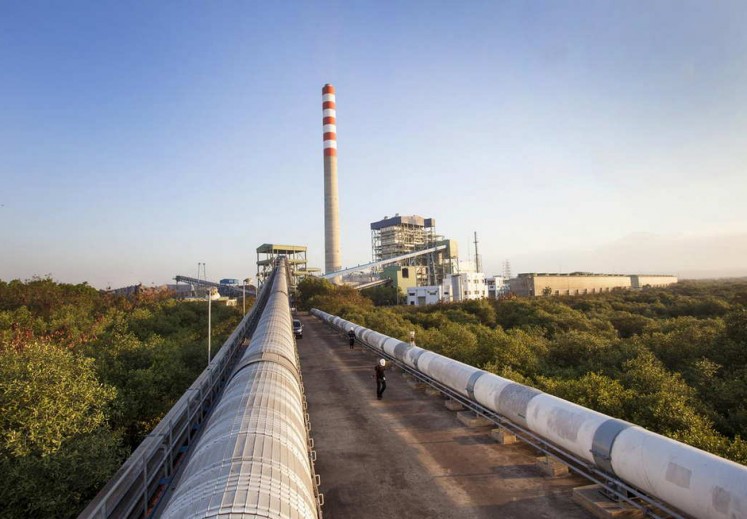Popular Reads
Top Results
Can't find what you're looking for?
View all search resultsPopular Reads
Top Results
Can't find what you're looking for?
View all search resultsIDX Composite falls 0.69% with six sectors slipping to red zone
The IDX Composite index ended Monday's trading down by 50.54 points, 0.69 percent, with six sector indices falling into the red zone.
Change text size
Gift Premium Articles
to Anyone
T
he Indonesia Stock Exchange (IDX) Composite index closed down 50.54 points, 0.69 percent, at 7,266.69 at the end of trading on Monday.
A total of 266 stocks rose, 290 stocks fell, and 227 stocks remained unchanged. Five sectoral indices strengthened, while six others slipped into the red zone.
The sectoral index with the largest increase was the energy sector, which rose by 0.78 percent, followed by the health sector, which increased by 0.54 percent, and the basic materials sector, which was up by 0.53 percent.
On the other hand, sectoral indices with the deepest declines were the financial sector, which fell by 1.66 percent, the transportation sector, which dropped by 1.64 percent, and the consumer non-cyclical sector, which decreased by 0.65 percent.
Total trading volume on Monday was 17.88 billion shares worth a total of Rp 14.27 billion (US$891.38 million).
Today's top gainers in the blue-chip LQ45 were PT Medco Energi Internasional (MEDC), up 8.03 percent; PT Vale Indonesia (INCO), up 7.52 percent; and PT Merdeka Battery Materials (MBMA), up 6.61 percent.
Meanwhile, the top losers in the LQ45 were PT Barito Pacific (BRPT), down 10.45 percent; PT Bank Mandiri (BMRI), down 3.8 percent; and PT Bank Negara Indonesia (BBNI), down 3.77 percent.
While the Composite fell on Monday, five stocks saw sharp gains.
PT Dunia Virtual Online (AREA) increased by 19.1 percent to Rp 168, and PT Surya Biru Murni Acetylene (SBMA) soared by 18.2 percent to Rp 175. Additionally, PT Paperocks Indonesia (PPRI) rose by 13.4 percent to Rp 118, PT Wahana Inti Makmur (NASI) increased by 12.1 percent to Rp 175, and PT Optima Prima Metal Sinergi (OPMS) climbed by 10.1 percent to Rp 65.
Research from Pilarmas Investindo Sekuritas explained that domestically, sentiment toward the Composite index derived from Bank Indonesia, which reported that by the third week of May 2024, foreign investor capital inflows into the country amounted to Rp 22.06 trillion.
These foreign capital inflows came from the government securities market (SBN), the stock market, and Bank Indonesia's rupiah securities (SRBI).
"The influx of foreign capital into the country undoubtedly reflects confidence in the attractiveness of the domestic economy for investors to invest in. Moreover, with the influx of foreign funds from the domestic financial market, Indonesia's investment risk premium has decreased," said Pilarmas Sekuritas.
While the Composite index fell on Monday, most Asian stock indices rose. Shanghai increased by 0.54 percent, the Hang Seng by 0.42 percent in Hong Kong and the Nikkei by 0.73 percent in Tokyo. Singapore's Straits Times index also went up by 0.15 percent.











